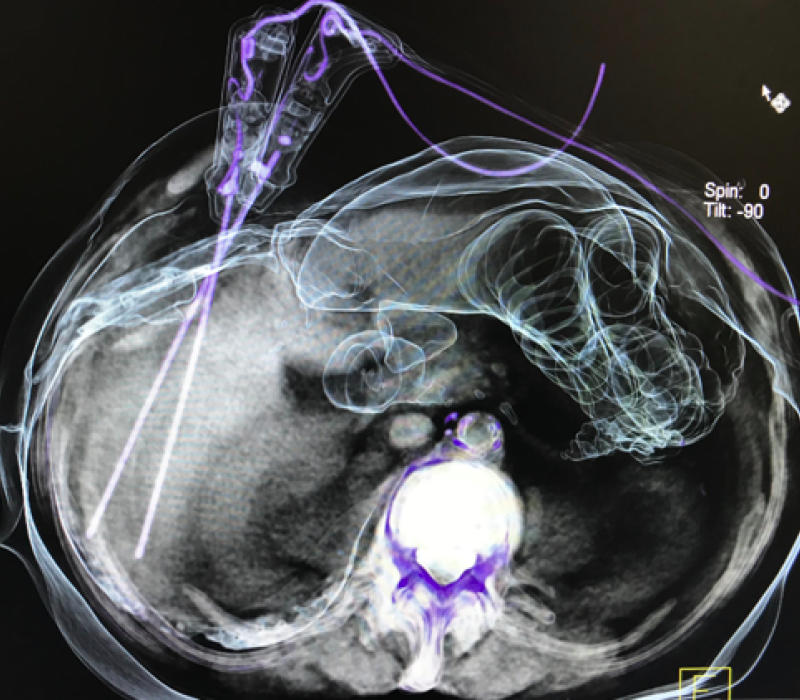ABLATION THERAPIES
Introduction
Presentation
In recent years, minimally-invasive treatment of liver tumors such as thermal ablation (RFA, MWA) has emerged as a first-line curative treatment approach for patients with small hepatocellular carcinoma (HCC) lesions. The diagnosis, identification, and treatment of such tumors is indeed challenging. The key objectives of percutaneous ablation are complete coverage of the tumor with ablation necrosis. Insufficient coverage of ablation necrosis is related to local tumor progression, which is also associated with poor survival prognosis. During this course, you will be guided to understand and identify the main indications, therapy modalities, prognostic factors, and management of complications when performing ablative therapies.
 8
lessons
8
lessons
 9
speakers
9
speakers
 03:21
hours
03:21
hours
 51
followers
51
followers
Course directors

Mariano Gimenez
Professor of Percutaneous Surgery
Director Percutaneous Surgery
IHU-Strasbourg

Objectives
- To learn the principles of ablation therapies in the treatment for liver malignancies treatment
- To identify current ablation technologies, guidance systems, clinical indications, and guidelines for the ablative treatment of liver tumors.
Lessons
Tumoral Ablation Therapies
Ablation of liver tumors is a minimally-invasive locally destructive treatment alternative to surgical resection. Not only is ablation considered for patients not amenable to surgical resection (<20%) but also increasingly for resectable tumors even with a curative intent.
Ablation System
Locoregional therapies represent an important tool in the treatment of liver metastases that are currently used to palliate symptoms, control disease, and in some cancers, have been shown to prolong survival.
Liver MW Techniques and Results
Microwave technologies may improve thermal ablative performances, covering a larger liver ablation volume which is ideal for large liver tumors.
Liver Ablation, Which Approach: Percutaneous, Open or Laparoscopic
A laparoscopic approach may aid to improve visualization, and overall performance while using ablative therapies. The combination of percutaneous and laparoscopic approaches are used widely among hepatobiliary surgeons to improve outcomes. In this talk, Dr.
Liver Ablation on HCC
Hepatocellular carcinoma (HCC) is one of the most common and often one of the most difficult liver cancers to treat, especially when of multicentric origin. This can result in a poor prognosis after surgical resection, with a high risk for tumor recurrence.
Follow Up After Tumour Ablation
Proper monitoring of treatment response and potential complications depend on medical imaging and physician skills. Immediate assessment of the results may be fundamental in predicting recurrence and improving outcomes.
Management of Complications
Although ablation therapy has been accepted as a promising and safe technique for the treatment of unresectable hepatic tumors, complications are present.
Experience with Angio-CT for Interventional Oncology
Interventional oncology therapies include a wide range of options in which imaging is a crucial factor for success. Imaging solutions play a key role in assessing planning, guiding and controlling the results during oncology procedures.
